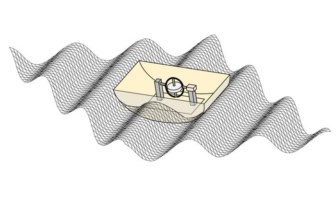In the previous episode of the Physics World Stories podcast, Andrew Glester revisited the birth of the World Wide Web at CERN in 1989. This month, Glester looks to the future of Internet technologies, profiling some of the developments that might transform our daily lives.
Glester finds out about the different ways we will connect to the Internet in the near future. Global access could be expanded thanks to WiFi provided by satellites in low-Earth orbit. Meanwhile, a more secure way of connecting to the Internet could be provided by LiFi – wireless data encoded into everyday light sources.
Looking beyond the individual technologies, the concept of an Internet of Things (IoT) holds the promise of making everyday living more convenient. Devices are already on the market, such as fridges that monitor your eating habits and automatically order replenishments. In the future, these sorts of systems could become commonplace in all aspects of society.
But as we move to an ever-more connected world, we also leave ourselves more vulnerable to cybercrime. To discuss security considerations, Glester catches up with ethical hacker Freaky Clown who describes the cat-and-mouse battle between the security services and cyber criminals.
If you enjoy what you hear, then you can also subscribe to Physics World Stories via Apple podcasts or your chosen podcast host.



